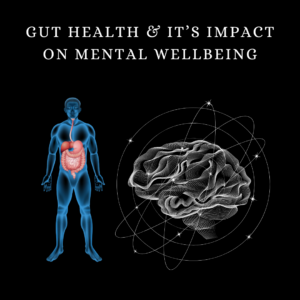The Surprising Link Between Gut Health and Mental Health

When we think about our health, we often focus on our physical appearance and well-being. We may exercise, eat a balanced diet, and get enough sleep to maintain our physical health. However, there is one aspect of our health that is often overlooked but has a significant impact on our overall well-being – our gut health.
The gut, also known as the digestive system, is responsible for breaking down the food we eat, absorbing nutrients, and eliminating waste. It is also home to trillions of bacteria, known as the gut microbiome. These bacteria play a crucial role in our gut health and have been linked to various aspects of our physical and mental health.
But what exactly is the link between gut health and mental health? Let’s delve deeper and explore this surprising connection.
The Gut-Brain Axis
The gut and the brain are often referred to as the “twin organs” due to the close relationship between them. They communicate through a complex network of nerves, hormones, and chemical messengers, known as the gut-brain axis.
This connection is bidirectional, meaning that the gut can affect the brain and vice versa. For example, when you feel anxious or stressed, you may experience physical symptoms in your gut, such as stomach pain or digestive issues. On the other hand, gut issues can also contribute to mental health conditions like anxiety and depression.
The Gut Microbiome and Mental Health
The gut microbiome plays a crucial role in maintaining our gut health and has been linked to various mental health conditions. Research has shown that people with certain mental health disorders, such as depression and anxiety, have an imbalance in their gut microbiome.
The gut bacteria produce neurotransmitters, such as serotonin and dopamine, which are essential for regulating mood and emotions. When there is an imbalance in the gut microbiome, it can lead to a decrease in the production of these neurotransmitters, contributing to mental health issues.
Furthermore, the gut microbiome also influences the immune system and inflammation in the body. Chronic inflammation has been linked to various mental health conditions, including depression, anxiety, and even schizophrenia.
The Role of Diet in Gut and Mental Health
The food we eat has a significant impact on our gut health and, in turn, our mental health. A diet rich in fruits, vegetables, and whole grains provides the necessary nutrients for a healthy gut microbiome. On the other hand, a diet high in processed foods, sugars, and unhealthy fats can disrupt the balance of bacteria in the gut and contribute to inflammation.
A study published in the journal Psychosomatic Medicine found that participants who followed a Mediterranean-style diet, rich in fruits, vegetables, and healthy fats, had a lower risk of developing depression compared to those who followed a diet high in processed foods.
Probiotics and Mental Health
Probiotics, also known as “good” bacteria, can be found in fermented foods like yogurt, kefir, and sauerkraut. These beneficial bacteria can help restore balance in the gut microbiome and potentially improve mental health.
A review of 15 studies found that taking probiotics had a positive effect on symptoms of depression and anxiety. However, more research is needed to determine the specific strains of probiotics that are most effective for mental health.
In conclusion, the link between gut health and mental health is a complex and fascinating one. Our gut plays a crucial role in our overall well-being, and taking care of it can have a significant impact on our mental health. Eating a healthy diet, incorporating probiotics, and managing stress can all help maintain a healthy gut microbiome and potentially improve our mental well-being. So next time you’re feeling down, don’t forget to take care of your gut.